Lockdown eased: Boris Johnson cuts two-metre rule to ‘one metre-plus’
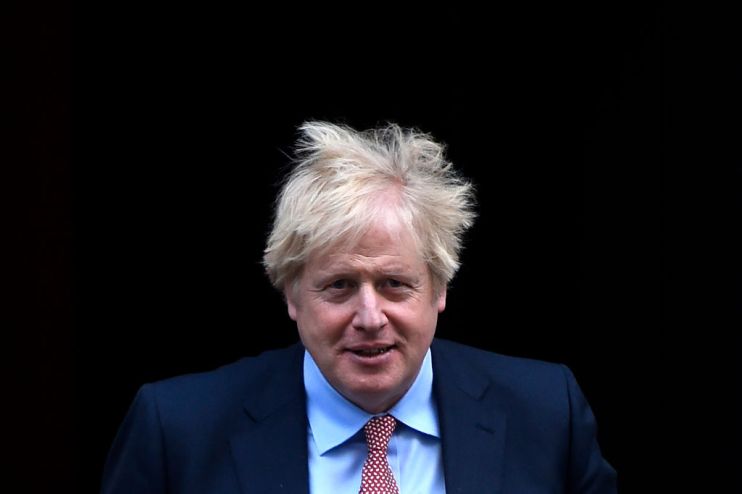
The Prime Minister has announced that the two-metre social distancing rule will be relaxed from 4 July, when pubs, bars, cafes, art galleries, museums, hotels and cinemas are set to reopen after months of closure.
Boris Johnson today said a dramatic fall in the rate of infection means “we can now safely ease the lockdown in England” from next month.
The widespread reopening is the biggest push towards a return to normality since lockdown began on 23 March.
“Today we can say that our long national hibernation is beginning to come to an end and life is beginning to return to our streets and our shops,” he added.
However, the Prime Minister issued a stiff warning that the government will not hesitate to apply the brakes if the number of infections start to rise. “The virus has no interest in these debates,” he said. “We will not hesitate… to reintroduce restrictions even at national level if required.”
Here’s everything the Prime Minister announced:
Two-metre gap rule
After getting the nod from scientific advisers Sir Patrick Vallance and Chris Whitty last night, Johnson announced that the two-metre social distancing rule will be relaxed from 4 July in favour of a new “one-metre plus” guidance.
From 4 July the public will be able to socialise both indoors and outdoors at a one-metre distance, rather than the two-metre gap so far enforced. But they must take mitigations to reduce the risk of infection, the Prime Minister added, such as wearing face coverings and gloves.
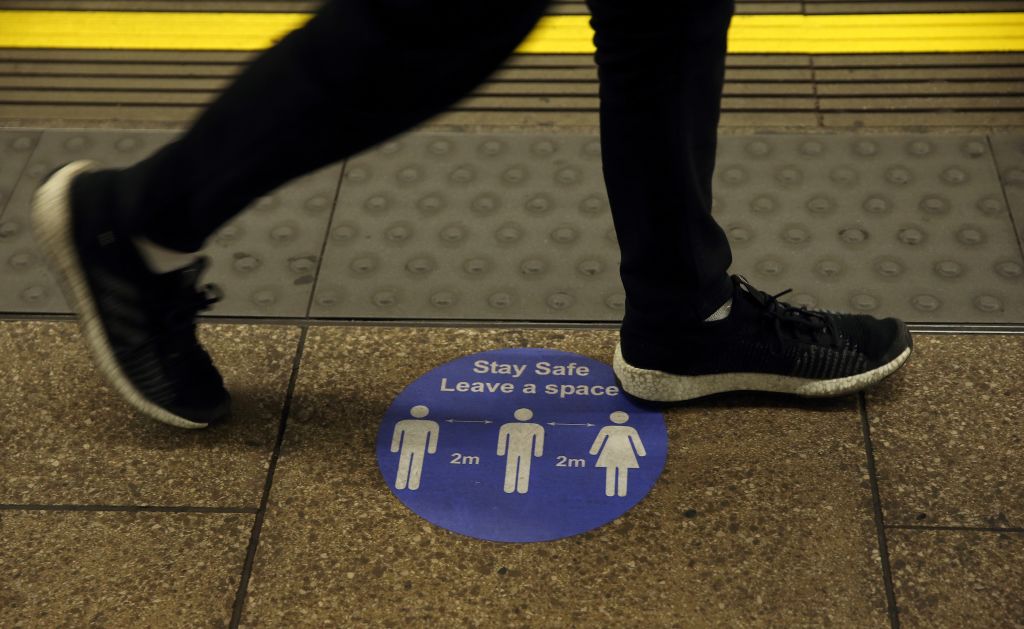
“Where it is possible to keep two metres apart people should, but where it is not we will advise people to keep a social distance of one metre plus,” he said.
On public transport, commuters must sit one metre apart and wear a mask. Some venues may be required to implement perspex screens, ventilation systems and strict hand-washing facilities in order to open under the new guidelines.
Office layouts will be changed to prevent face-to-face desks, and shift patterns will be revised so that staff work in small teams to reduce the level of social interaction.
Pubs, cafes and restaurants to reopen as two-metre gap eased
Easing the two-metre gap is the key to reopening the UK’s hospitality sector, which relies on close interaction in confined spaces.
Pubs, restaurants and cafes will now be able to reopen from 4 July, provided they can do so in a safe and secure way.
Venues will be forced to keep a register of all visitors for 21 days, to assist with the UK’s track and trace system.
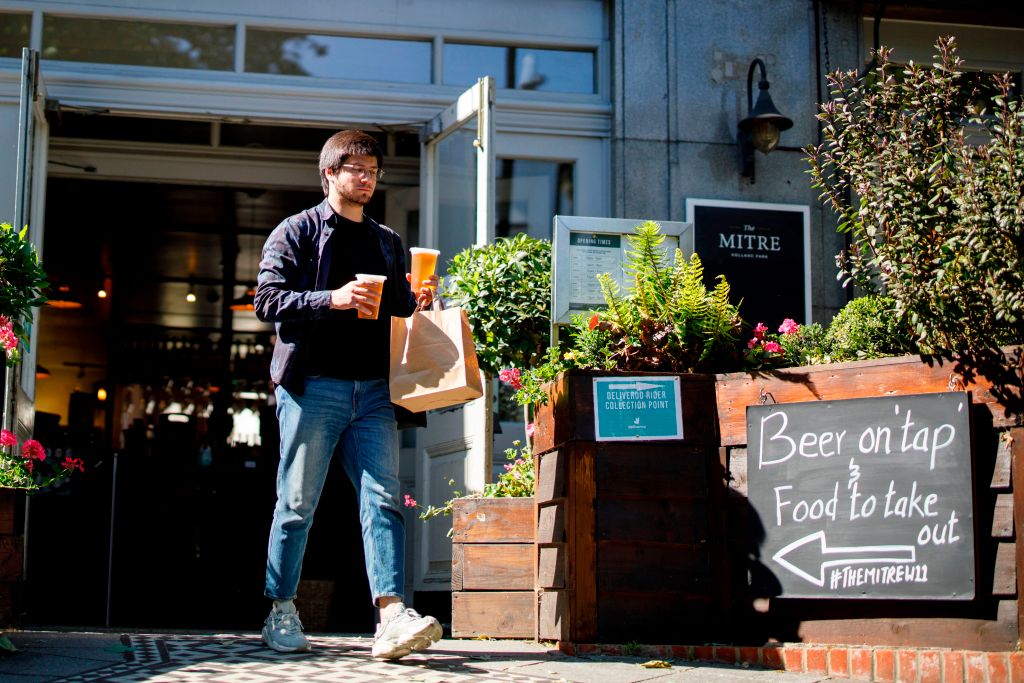
If somebody who has been out for a lunchtime pint starts showing symptoms, contact tracers will request the names and numbers of everybody who was in the pub at the time and ask them to self-isolate.
However, England will not adopt ID checks as other countries have done, and the government is instead relying on the hope that people will exercise “common sense”. Pub landlords will not be required to check whether people are from the same household.
The public will only be able to meet for lunch, dinner or a pint with one other household at one time. But you could, for example, go for lunch with one household, and dinner with another.
“All hospitality indoors will be limited to table service,” Johnson announced. The new guidance will also limit the amount of staff in each venue to reduce physical contact. Office canteens will be able to reopen from 4 July, provided they adhere to the one-metre plus guidance.
“There is hardly an area of the country I don’t intend to visit in the course of the reopening of pubs and hostelries of this country,” the Prime Minister said.
The government is set to change licensing rules to automatically allow venues to serve takeaway alcohol as part of an “al fresco revolution”. Johnson is expected to release further details of how hospitality venues can safely reopen this afternoon.
Meeting indoors
From 4 July, members of two households will be able to meet indoors, as long as they maintain the new one metre-plus social distancing rules.
People must remain one metre apart, wash their hands regularly, and clean shared spaces. Households will be able to invite members from another household over for dinner.
And it looks like sleepovers might be back on the cards — the government is in talks to allow visitors to stay overnight with another household, though this has not yet been confirmed.
Exclusivity is not required. Households can meet with one set of grandparents on one occasion, for example, and another set of grandparents the next weekend. However, households will for now not be able to meet indoors with more than one household at a time.
“There is only one certainty — the fewer social contacts you have, the safer you will be,” the PM warned. He added that social interaction will be about striking a balance between controlling the virus and “our natural desire to bring back normal life”.
The PM’s official spokesman said the government was working on the basis that “people will show common sense.”
“They’ve worked really hard to get this disease under control… People will follow our advice, it will allow them much more social contact,” he added.
If families who are meeting other households start to show symptoms, they must provide contact tracers with details of other households they have met up with. The PM’s spokesman recommended keeping a diary of close contacts.
Meeting outdoors
Two households of any size will now be able to meet outside from 4 July, meaning summer picnics are back on the menu.
Current rules allowing outdoor meetings of up to six different people from up to six different households will remain in place.
“The changes are based on clear evidence that we are getting coronavirus under control”, said the PM’s official spokesman. “The R rate is falling two to four per cent everyday. We believe people know the risk of the virus.”
Art galleries, museums and cinemas
Downing Street made the unexpected announcement last night that other leisure and cultural venues including art galleries, museums and cinemas will also be allowed to reopen from 4 July, as long as they comply with a fresh set of social distancing rules.
“Bingo halls, theatres and concert halls will reopen,” the Prime Minister said, but on the basis that they provide no live performances. Venues must for now only screen past performances, following concerns that singing and projecting your voice loudly is more likely to spread the virus.
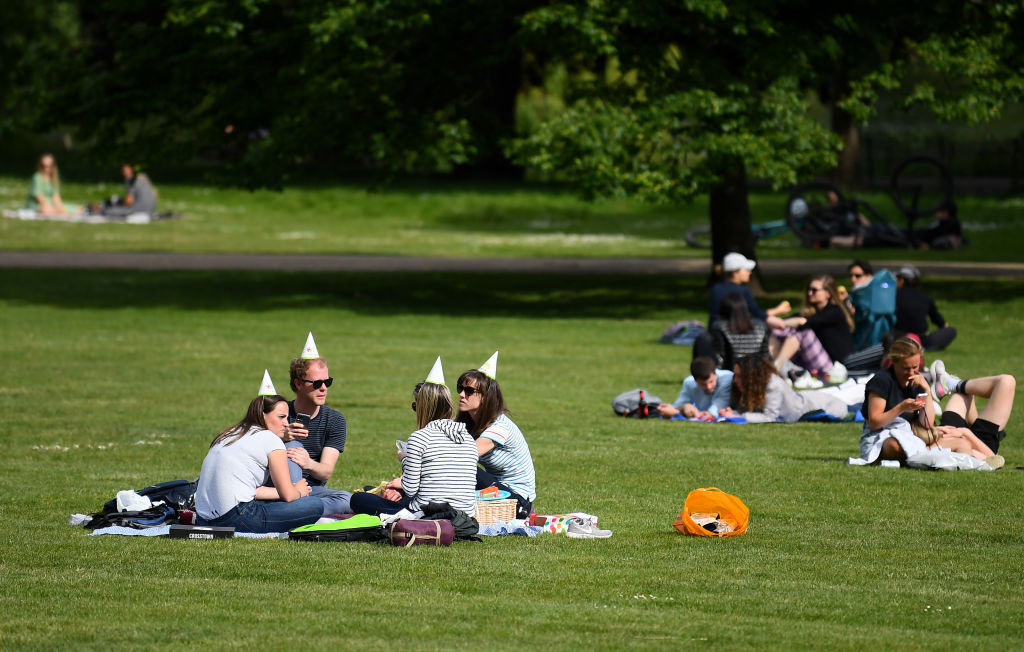
The Department for Digital, Culture, Media and Sport is working on guidance for live performances and festivals, but for now it’s bye-bye Glastonbury and hello to repeats.
Libraries, community centres and will also open, but exhibition and conference centres will remain shuttered.
It is up to businesses whether to update their recently-laid two metre gap signs, which cost the government £50m to distribute, to the new one-metre guidance.
“Being two metres apart is a very good way of reducing transmission… Whether or not they want to implement the one-metre plus guidance is up to them,” said Johnson’s official spokesperson.
Hairdressers, gyms and fitness facilities
Hair salons and barbers will reopen with appropriate protections, including the use of visors. “Almost as eagerly awaited as a pint will be a haircut, particularly by me,” said the PM.
Playgrounds and outdoor gyms will also open their doors from 4 July, but beauty salons, indoor fitness centres and gyms, swimming pools and water parks will remain shuttered for now, because high levels of movement, perspiration and close interaction pose a far greater risk of infection.
Culture secretary Oliver Dowden added: “We’ve made lots of progress and I know steps businesses have taken to make their spaces and equipment safe. Subject to public health, our aspiration is to reopen gyms and leisure facilities in mid-July.”
But massage parlours, spas, nail bars, and tattoo and piercing parlours will remain closed for hygiene reasons.
“I’m acutely aware that people will ask questions as to why certain activities are allowed,” said Johnson. “We will open them as soon as we can when we are confident we can in a Covid-secure way.”
Most non-ball sports will be able to resume, but cricket will remain off limits for now, the Prime Minister announced. “The ball is a natural vector of the disease”, he said, adding that the government “still working on ways to make cricket secure”.
Theme parks and other leisure venues
Theme parks, funfairs, indoor social clubs, model villages, and will be able to reopen on 4 July if with the new one metre-plus guidance.
However, indoor venues such as nightclubs, casinos, bowling alleys, skating rinks and indoor play areas will remain shuttered for now.
“We will work with them intensively to find ways that will make them Covid-secure and help them reopen, but it’s not felt that at this moment in time it’s possible to take that extra step,” the Prime Minister’s official spokesman said.
Holidays
Hotels, B&Bs, cottages, bungalows and caravan parks in the UK will be allowed to reopen on 4 July, meaning summer staycations are back on the cards.
“From 4 July, provided that no more than two households stay together, people will be free to stay overnight in self-contained accommodation,” the Prime Minister announced.
Campsites, which were expected to remain exempt from the new guidance, will be able to open, as long as shared facilities are kept clean.
Hostels will not be able to reopen yet, as shared dormitories and washing facilities are considered unsafe at the moment.
Places of worship
Churches, mosques, synagogues and other places of worship will be allowed to reopen from 4 July. Mass worship will be allowed, but live singing will not be permitted. Its a yes to prayers, but a no to hymns for the moment.
“This year Easter, Passover and Eid all occurred during lockdown, so I’m delighted to reopen places of worship,” said the Prime Minister.
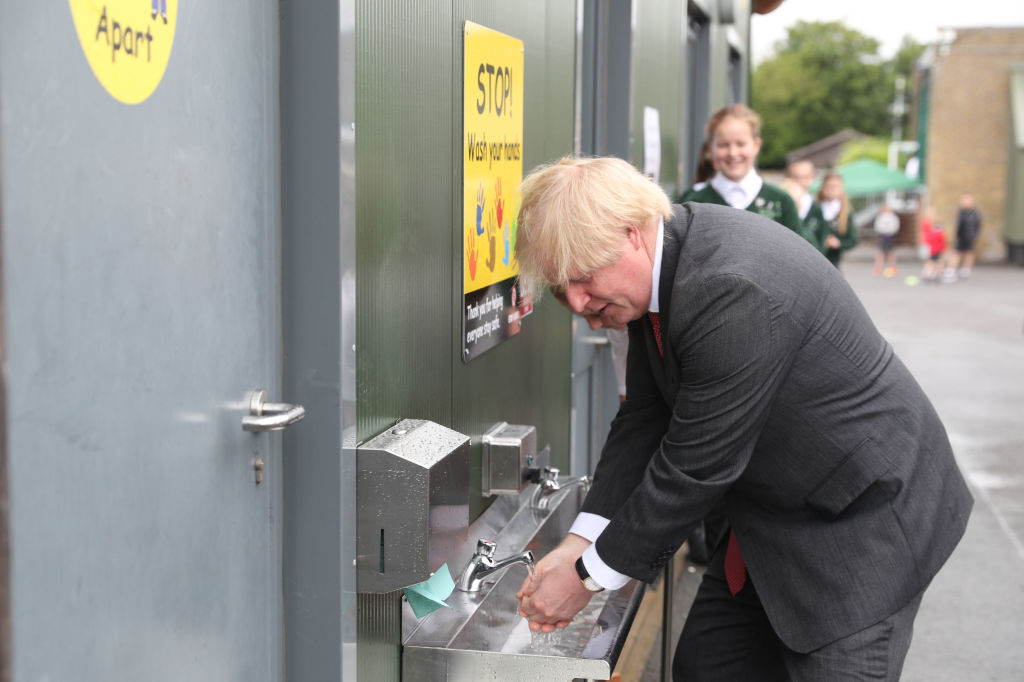
Like pubs and restaurants, places of worship will also be made to keep a register of all visitors to share with contact tracers should an outbreak occur. “We have seen localised outbreaks in other countries in all sorts of venues from pubs to places of worship,” said the PM’s spokesman.
“Life cycle events”, such as weddings, funerals, baptisms and bar mitzvahs will be permitted, but with limited attendance. The PM’s spokesman said the government was still working out what the exact figure will be, but that it will “probably be more than six”. Brides and grooms will be able to invite up to 30 wedding guests.
Schools
The government will consider extending the current bubble system, which limits children’s interaction to groups of 15 pupils. Education secretary Gavin Williamson will publish a separate guide on how to safely reopen schools in the next few weeks.
“Primary and secondary education will commence in september with full attendance, and every child that can go to school at the moment should do so”, said Johnson.
The end of lockdown?
“Our cautious relaxation of the guidance is entirely conditional on our continued defeat of the virus,” said the Prime Minister.
The Covid alert level last week was reduced from four to three, meaning it is now safe to emerge from months of lockdown. Johnson said we must not forget that the virus “has inflicted permanent scars,” but that the infection rate has fallen significantly.
“We created a human shield around the NHS and in turn they saved us,” said Johnson. However, he warned that the “more we open up, the more vigilant we will need to be”.
“After the toughest restrictions in peacetime history, the virus has not gone away,” he said. “There will be flare ups and we will not hesitate to reintroduce restrictions even at a national level if required.”